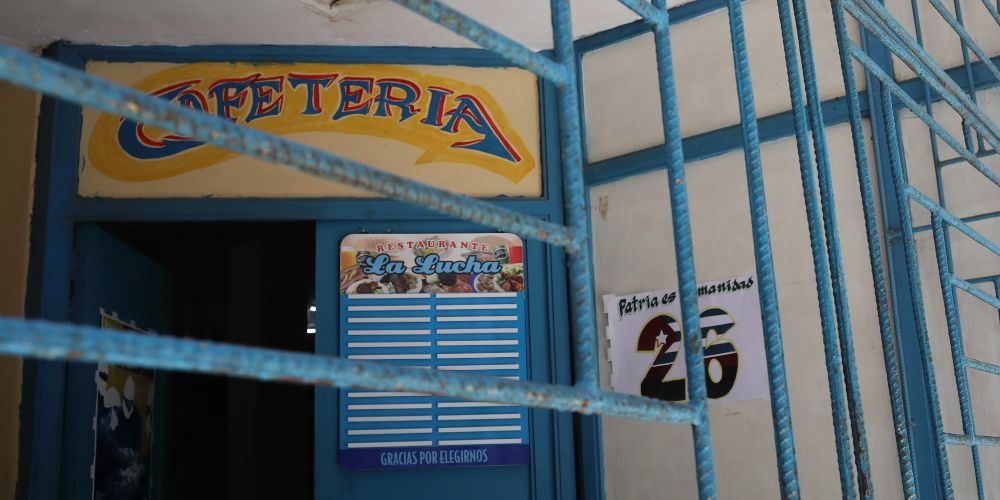HAVANA, Cuba. – A realistic analysis of our situation should start from the fact that there are no “private businesses” in Cuba, nor are there any conditions for such a thing to emerge. What we have seen as such, what we have labeled as such because we do not want to find another way to name it, are pure illusions, born from the “trauma” suffered by many because of their resistance to accept that the “private” has no place under a totalitarian regime.
The private was among the first “attributes” that Castroism attributed to the “enemy” in order to embody it, and against it it displaced all those negative feelings and attitudes (hatred, envy, revenge, laziness, delinquency and mediocrity) that populism always needs to mobilize not only to justify its perpetuity in power but, above all, to mask its constant failures.
Hence the seemingly “absurd” annihilation of the smallest manifestations of the private sector in the 1960s, the abolition of private life with the Committee for the Defense of the Revolutionthe creation of schools in the countryside and a strongly ideologized education in order to surreptitiously dynamite the core of individuality that constitutes the family, the establishment of the system of political endorsements (that is, the “collective” approval or disapproval of a right) to continue studies or access a job, and from there, of course, the successive and endless purges in their own ranks, the setbacks, the “rectifications,” the “corrections” where —let us look carefully— they attack not the evil that affects us but only that which supposedly does not contribute to “unity,” a concept of pure ideological fantasy but which for communists will always be irreconcilable with the private.
Precisely for this reason it is also important to keep in mind that the opposite of the “private” for communists is not at all the “collective” (one of the great scams of Castroism) but everything that is outside of that “unity” that we should not confuse with “unity of consensus” (neither political nor ideological) but, in any case, as “unity of a repressive body”, that is, of a regime that only survives by virtue of the repressionand therefore exhausts most of the resources to strengthen it.
So those attempts at “private” forms that are not articulated with that “unity” (which is actually “repression,” I repeat) do not have the remotest chance of prospering, despite the “benefits” of laws, decrees, contracts and promises, and despite the fact that an “individual enterprise” wants to establish itself outside of politics under the pragmatism that “business is business” in a highly politicized scenario where the true big “business” of the regime consists of nothing other than staying in power at any cost.
That is to say, everything is circumstantial and everything exists in order to sustain the dictatorship. Thus, the “prosperous” businesses and entrepreneurs that we see here – survivors of all adversity – have somehow agreed to that “prosperity” with the regime in order to receive the “private” as a prerogative. So it is a mistake to distinguish one from the other as “individual” entities, just as it is a success to analyze them in their relationship of complicity.
For totalitarianism, the private —or rather, its own recreation of the “private”— is a privilege and not only is it impossible to exercise it or claim it as a right but the discourse itself, with its ambiguities and contradictions, is responsible for excluding it and even criminalizing it, and this is what we have been seeing these days with the offensive against SMEsas well as during all these years against any manifestation of individuality. And activists, writers, independent journalists, filmmakers, animal rights activists and even the men and women who are currently in prison for the “crime” of a simple post on their social networks know about this.
We witness this witch hunt as if it were a deja vu which has only taken by surprise the “dizzy”, that is, those who do not recover from that trauma that undoubtedly is going from suspicion to certainty that a communist regime is in reality a political abomination where every trace of individuality is annihilated by virtue not of an ideology or a “dream” (that is what they say to look “pretty”), but of old grudges, envy, frustrations, ambitions and all the worst of human nature.
The businesses that have closed or gone bankrupt these days owe their failure to the inability of their “owners” to understand that they existed, that they were allowed to emerge, not for themselves as owners of capital and ideas, not even for the prosperity of an economy or a country, but only as a “conjunctural” element for the maintenance of a repressive system that discards everything that is not articulated with it in open complicity. And that is why the “surviving” guild is full of ex-repressors, ex-leaders, friends and relatives of this or that figure in power.
The “dignified prosperity” of which he speaks Miguel Diaz-Canel (a qualifier that in itself lowers a few “notches” the concept of “prosperity” that we assumed was “full” by Raúl Castro) is not and will not be for the communists and the military above that which they call “unity” but which is in reality “repression” in its most perverse degree and which will never recognize as a right what is truly “private”, so that it can never be realized even to that minimum, miserable degree, which means the “dignified” compared to the “full”.
Starting a “business” in Cuba with the hope of “prospering” outside of repression is more than just a fantasy, it is madness, a total ignorance of our reality and above all of the true origin and purpose of the material and human misery that surrounds us, that suffocates us, and that today unfortunately has reached the point of no return.
OPINION ARTICLE
The opinions expressed in this article are the sole responsibility of the person issuing them and do not necessarily represent the opinion of CubaNet.
Follow our channel WhatsApp. Receive the information from CubaNet on your cell phone through Telegram.
















